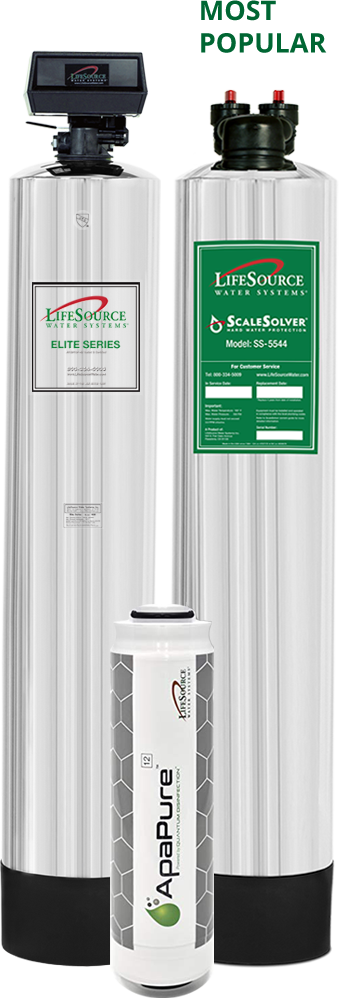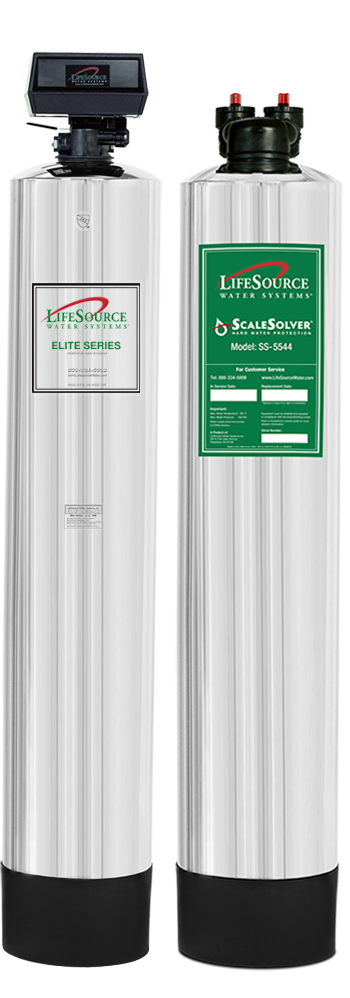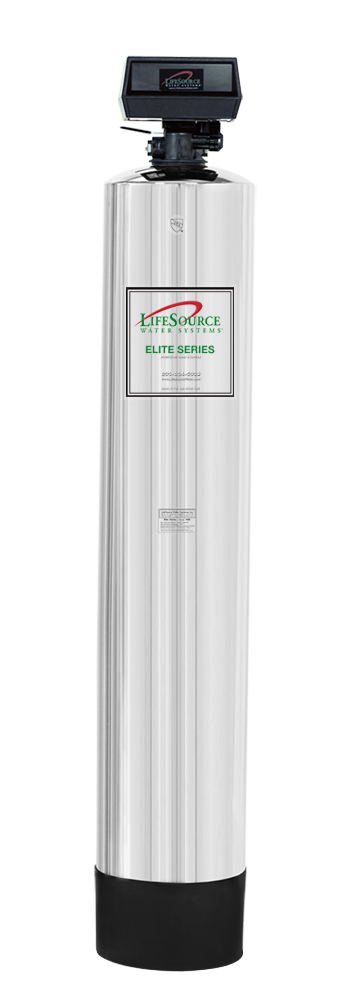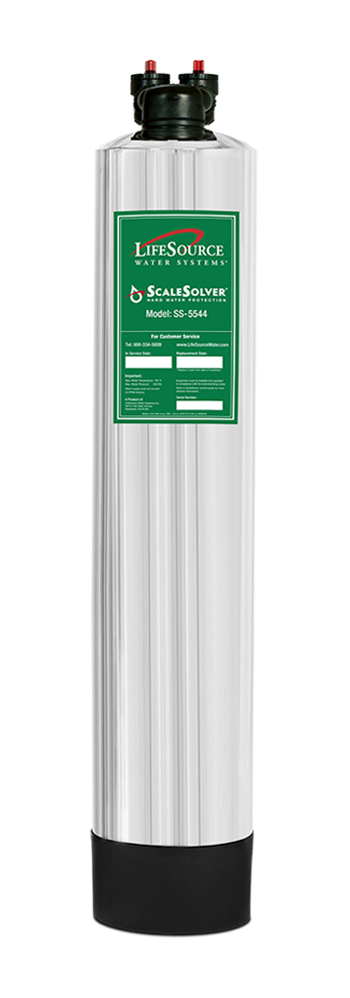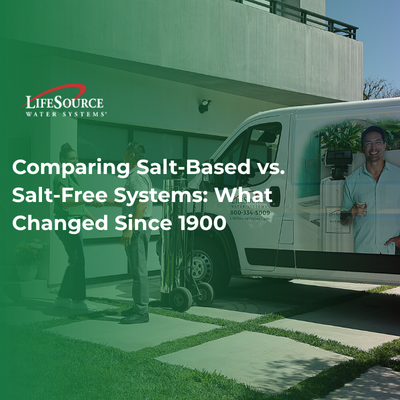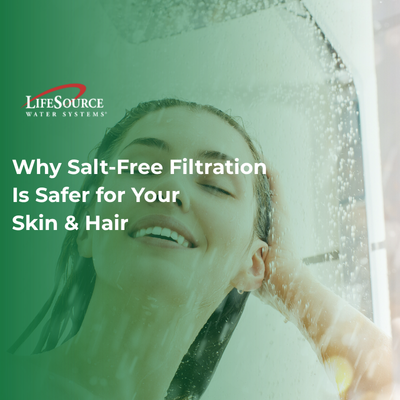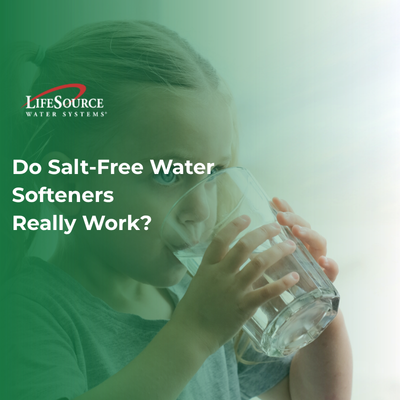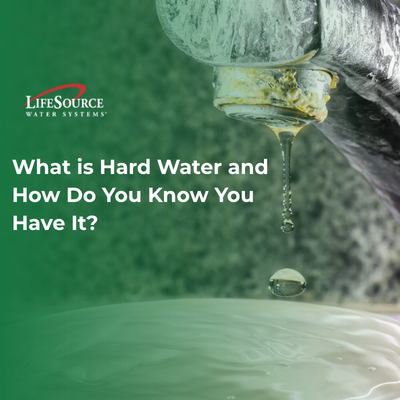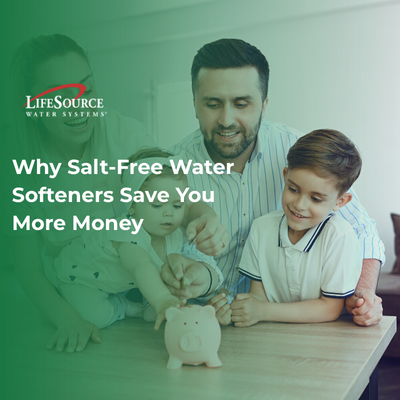
Why Are Water Softeners Being Banned by Law?
Water softener bans and restrictions aim to reduce brine (salty wastewater) from salt-based systems that can affect recycled water used for agriculture.
A water softener is a water treatment device that exchanges the naturally-occurring minerals in water with salt in a process called ion exchange. When water softeners regenerate, they flush the salt-filled solution into the sewage system. Water treatment plants don’t have the resources to treat this kind of water therefore, the wastewater stream becomes salty. Agriculture depends on the use of repurposed water for irrigation but high-sodium water is detrimental to crops. The ban on water softeners is to preserve the integrity of our wastewater so that it can be used for agriculture.
Also chloride compliance is a common driver for restrictions; local example: Santa Clarita automatic water softener ordinance.
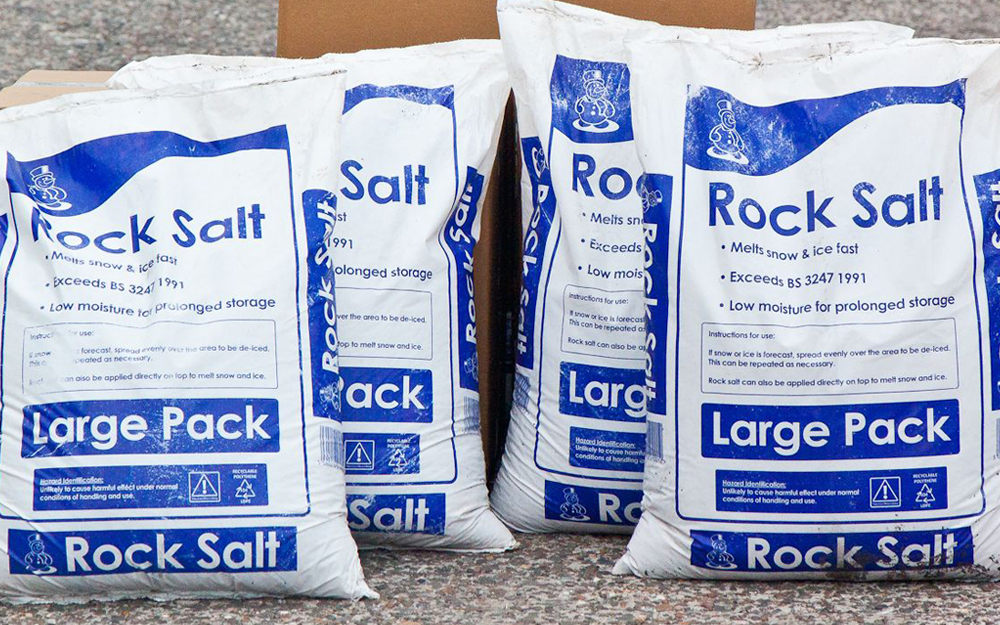
Why Desalination Isn’t a Sustainable Solution
When salt is added to the wastewater stream on a city-wide level, the only treatment that can remedy the problem is desalination.
When salt is added to the wastewater stream on a city-wide level, the only treatment that can remedy the problem is desalination. Desalination is the process of removing salt from water. This seems simple enough but it costs upwards of $400 million for a city to build a desalination plant. When only 12-18% of the population uses a water softener, it seems unfair to ask everyone else to help cover the cost of an expensive solution.
How Cities Curbed Salt-Based Softeners
Before outright banning water softeners, many cities implemented water softener buyback programs to incentivize people to choose alternative water systems.
These programs provided financial incentives for residents who removed and replaced their salt-based water systems. Some of the cities that implemented these kinds of programs were Santa Paula, Fillmore and Santa Clarita. Although the programs had marginal success rates, the cities found that the most effective way to limit water softeners was to ultimately ban them by law.
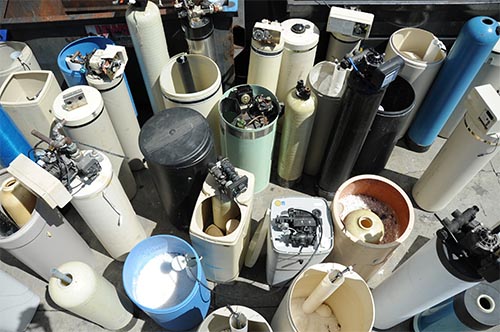
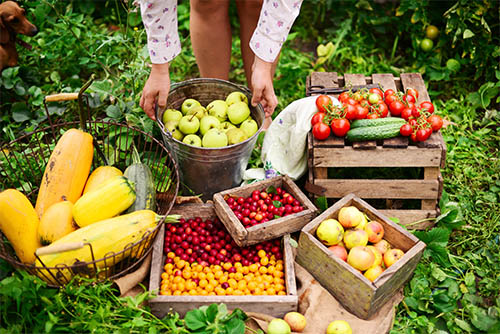
A Compliant Alternative & How to Check Your Area
Some of these cities that have banned water softeners include Los Angeles, San Diego, Riverside and Santa Barbara.
To ensure compliance, these cities send industrial waste inspectors to residents’ homes to search for illegal salt-based systems. If the resident opts not to let the inspector search their home, they can be charged with a sewage bill upwards of $2,000 with the assumption that they still have a salt-based system.
Cities are taking the ban on water softeners seriously to mitigate the negative effects of high-sodium wastewater on agriculture. A viable alternative to your salt-based water softener is to invest in a carbon-based whole-house water system. LifeSource Water Systems offers a whole-house water system that filters your drinking water without adding salt to it. It provides you clean, healthy, fresh water without compromising agriculture. Here you can compare options that avoid brine discharge: Salt-Free vs. Salt-Based Water Softeners.
Click here to get a free consultation today!
FAQs
Are water softeners banned everywhere in California?
No. Some local agencies restrict or remove self-regenerating salt-based softeners under state law that lets them regulate brine discharges.
Why do some places restrict water softeners?
Salty wastewater raises chloride levels that affect agriculture/recycled water, prompting local limits.
What can I use instead?
Salt-free whole-house conditioning/filtration avoids brine discharge and stays compliant.

